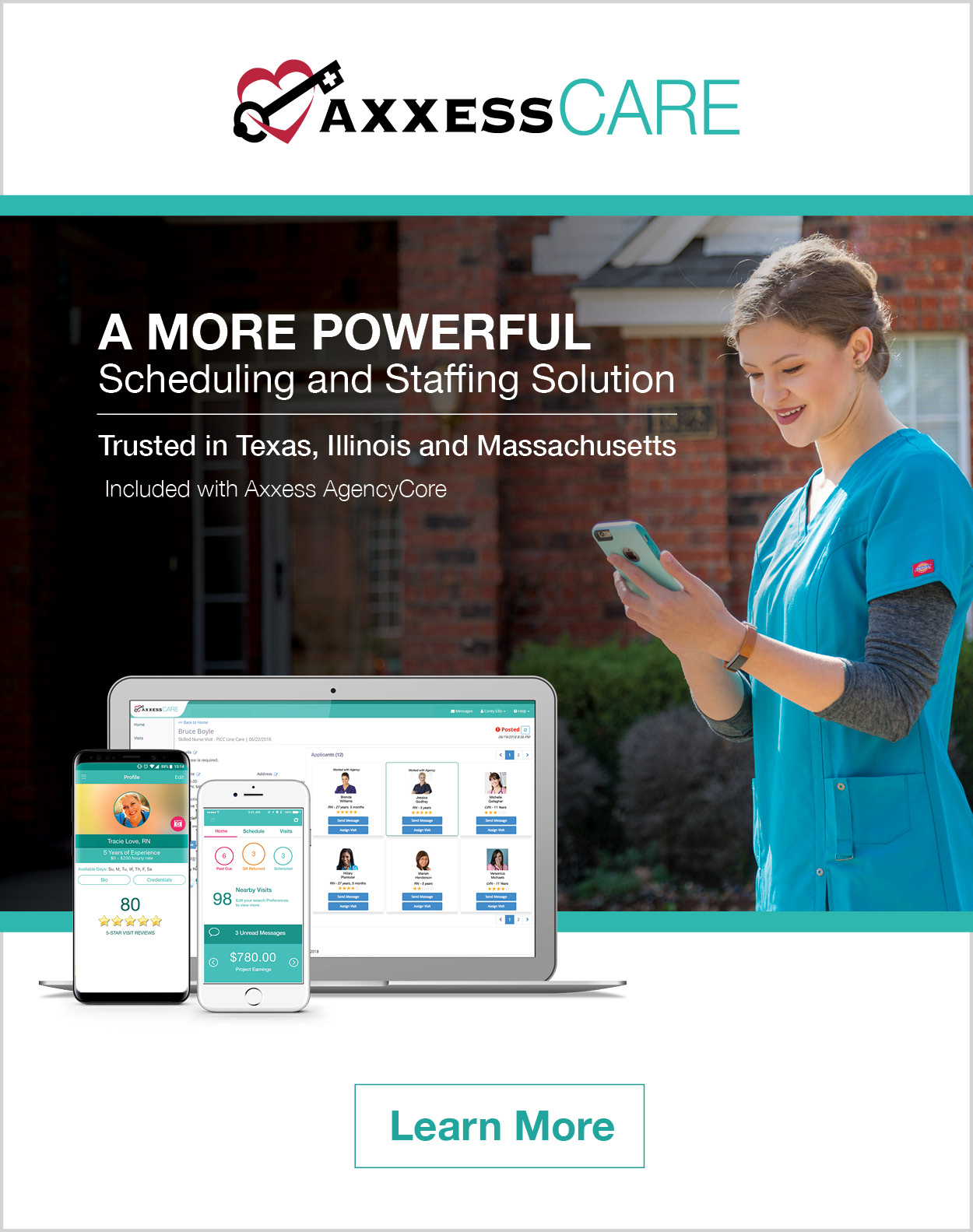
The Home Health Consumer Assessment of Healthcare Providers and Systems (HHCAHPS) patient engagement survey impacts the bottom line of home health agencies substantially, by attracting referral sources, value-based reimbursement, and payment under the Patient-Driven Groupings Model (PDGM). It is imperative for organizations to understand the HHCAHPS survey, and continuously work toward improving each measure to maximize long-term growth and sustainability.
Patient Willingness to Recommend Home Health Agency – Question 25
Question 25 is the last of two Global Rating Measures included in the Home Health CAHPS survey.
Patient Willingness to Recommend Home Health Agency 
This question measures whether the patient is certain that he or she would recommend the agency to family or friends. When reported publicly, this question reflects the percentage of patients who answered Definitely yes, as shown in the following example:

Patients who answer Definitely no, Probably no, or Probably yes lower the publicly reported percentage since CMS considers each of these responses an indication that the patient is not certain s/he would recommend the agency to others.
The national average for this global rating measure is the lowest of all the HHCAHPS survey measures, so agencies should pay specific attention to monitor performance on this question. Agencies must work persistently and tactically toward patient experience excellence to deliver care that patients feel is so outstanding they have no reservations about recommending the agency to others.
A literary analysis on word-of-mouth communication in healthcare discusses studies that identify key factors contributing to patients’ willingness to recommend a healthcare agency. These factors include gaining patients’ trust, establishing strong patient-provider relationships, carefully listening to patients’ needs, and treating patients courteously and respectfully.
Another study focusing on patient experience and informing healthcare practices from the patient’s perspective indicates, “A caring environment is the most influential when patients make judgements on their willingness to recommend [a healthcare institution]. The concept of caring staff incorporates a willingness to help and answer questions, responsiveness to requests, showing courteous [behavior], dignity and respect, providing clear explanations about medicines and how patients should care for themselves post discharge.” The study analyzed patients’ narrative feedback (survey comments) and identified five key words associated with the highest reported willingness to recommend the facility and four words associated with the lowest willingness to recommend the facility:

Earlier installments in our HHCAHPS blog series explore methods of improving patient experience through the lens of individual HHCAHPS survey questions, touching on the key factors outlined above. Optimal performance in each of these areas will contribute to patients’ willingness to recommend an agency, but directly eliciting positive word-of-mouth requires organizations to sustain an overall culture committed to exceeding patient expectations and operating under patient-centered standards.
Several factors influence patients’ willingness to recommend a healthcare agency, some of which are out of an agency’s control (e.g., patient demographic profiles have shown statistically significant impacts on patients’ willingness to recommend agencies, as referenced in the above-mentioned study). Care should surpass patient expectations to inspire positive word-of-mouth and recommendations even from patients who are otherwise unlikely to discuss their healthcare experiences with others.
The study acknowledges the challenges associated with establishing an approach to care delivery that’s universally appropriate and references the opportunity to introduce commonality by routinely identifying what matters to each individual patient and structuring care accordingly.
Patient-Centered Care
Healthcare organizations and professionals have varying definitions of patient-centered care (also called person-centered care). Picker Institute and Planetree, two organizations dedicated to advancing patient-centered care and improving patient experience, collaborated to develop a Patient-Centered Care Improvement Guide with practical resources and information for organizations and individuals seeking to become more patient-centered and excel in the healthcare industry’s competitive landscape. The guide states, “in the broadest terms, patient-centered care is care organized by the patient. It is a model in which providers partner with patients and families to identify and satisfy the full range of patient needs and preferences.”
The guide features an extensive selection of tangible resources and practice optimization methods that can be implemented immediately, are budget-friendly, and have promising potential to sustain lasting improvements. “Considering that these strategies are structured around aspects of the patient experience identified by patients as most needing improvement, the potential for these practices to yield high impact results is significant.”
Importantly, the guide supports the following essential concept: “Patient-centered care is about engaging the hearts and minds of those you work with and those you care for. It is about reconnecting staff with their passion for serving others. It is about examining all aspects of the patient experience and considering them from the perspective of patients versus the convenience of providers. Ultimately, it is about a collective commitment to a set of beliefs about the way patients will be cared for, how family will be treated, how leadership will support staff, and how staff will nurture each other and themselves.”
Patient-centered care requires a lasting commitment to delivering the best possible care and an organizational culture that is relentlessly focused around this vision.
Check our blogs for the full series on improving your agency’s HHCAHPS scores by systematically reviewing each of the HHCAHPS questions and sharing opportunities for improvement.

